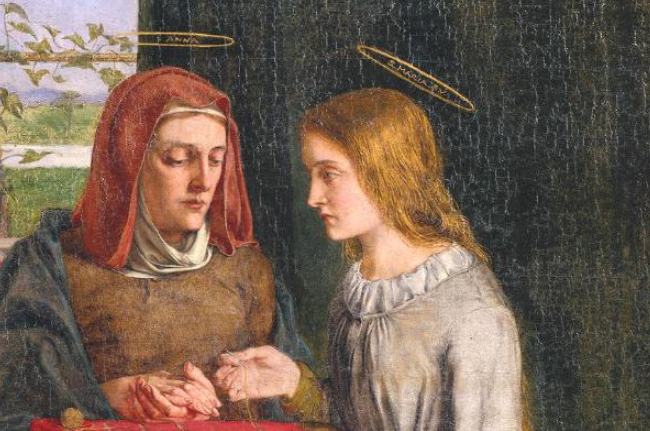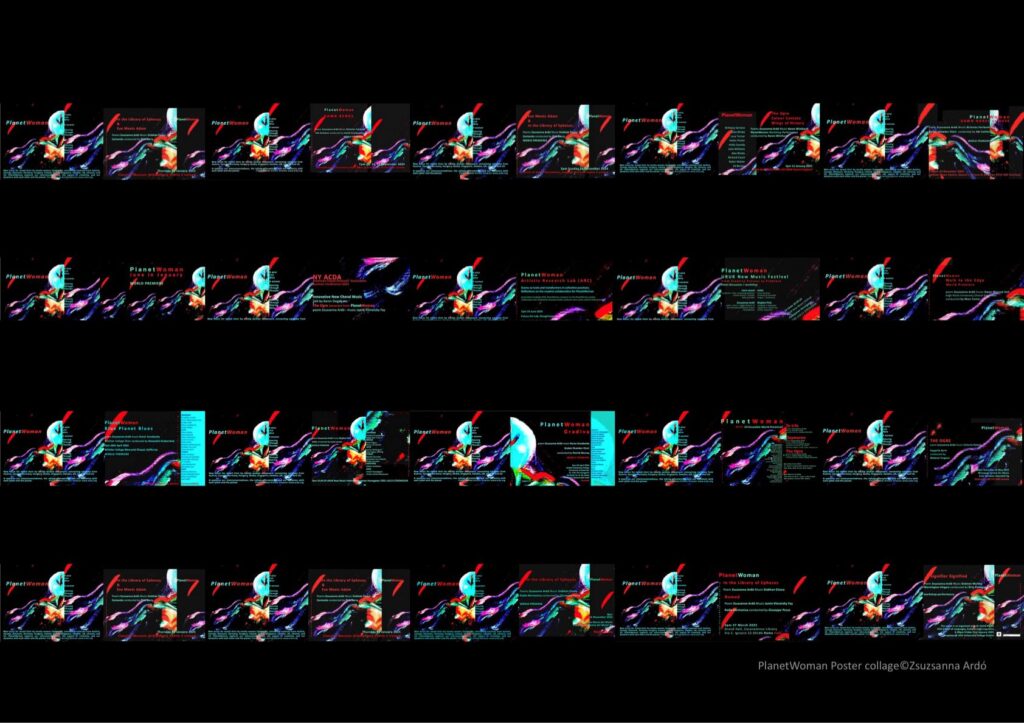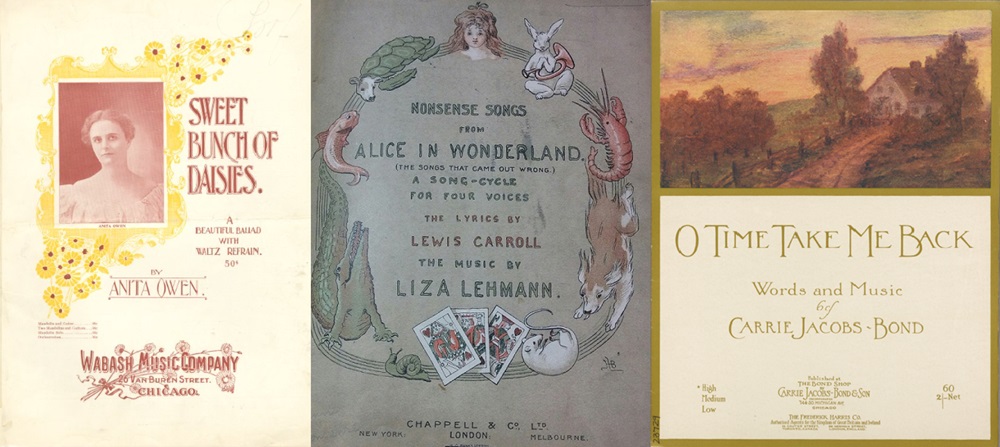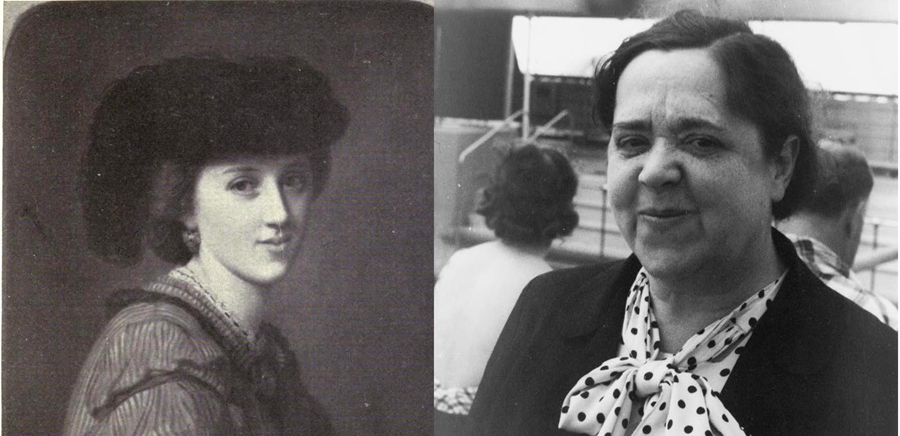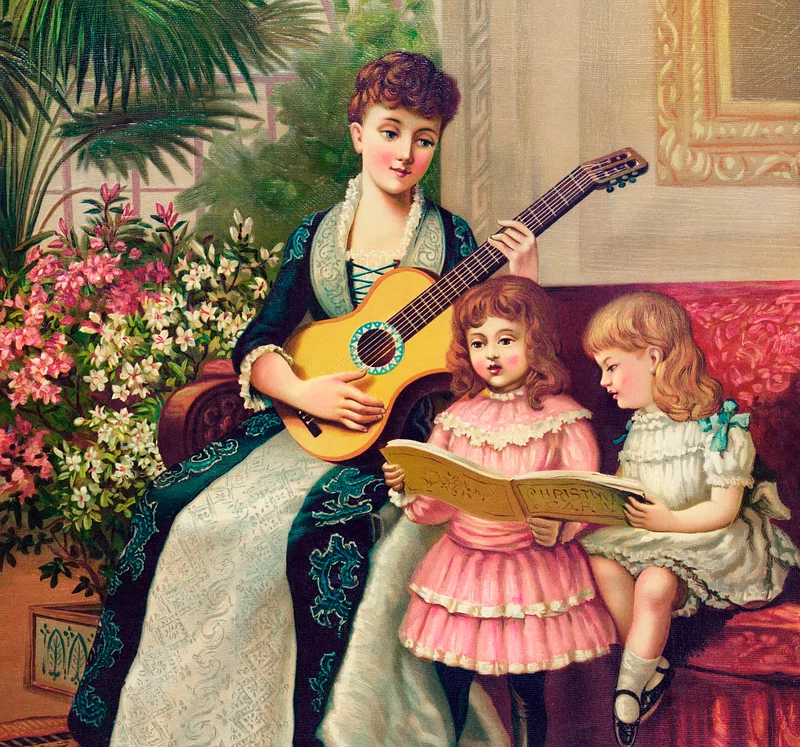A century ago, 19th-century British poet Christina Georgina Rossetti was the woman poet that women composers set most frequently. Today her popularity not only endures, it spans the globe. Among the signs that Rossetti still attracts readers: publishers issue new editions of her poems; fans visit websites, listen to radio broadcasts and podcasts, and watch films that draw on her writings or tell the story of her life; scholars present conference papers and write books, steadily reinterpreting her work.
And musicians play a part. Amateur and professional singers program and record settings of her poems, often posting the results on platforms such as TikTok, YouTube, and Spotify. But most indicative of the vitality of Rossetti’s appeal to musicians – evidence that more than merely attracting readers, she inspires them – composers continue to set her verses to their music.
One can explore this legacy with the aid of a wonderful resource: the Christina Rossetti in Music project at the University of Ottawa, the work of a team of scholars led by Professor Mary Arseneau. Among its various tools, this website makes it possible to search for composers by gender. Currently there are 1259 listings of settings of Rossetti poems by men and 324 by women. Were it feasible to narrow the search by decade or generation, the gender divide of compositions in recent years would be far more balanced.
With one exception, the playlist that follows presents songs and choral works by a selection of eminent women composers active today. Here are eleven poems set by thirteen composers from eleven countries: Australia, Brazil, Bulgaria, Canada, Germany, Great Britain, Italy, Japan, Slovenia, Switzerland, and the United States. Most of the compositions are from the last decade; many from the last few years. Rossetti is read, composed, and sung around the world.
Warm, Where Snowflakes Lie (The Key-Note)
Sally Whitwell (Australia), distinguished pianist and composer, has set five poems by Rossetti. This song appears on the 2015 album of her own compositions, I was flying. Rossetti begins with a question: “Where are the songs I used to know, / Where are the notes I used to sing?” The performers are Alexandra Oomens, soprano, and Sally Whitwell, piano. (Among her other Rossetti songs there is also Nightingale, from the 2010 cycle, The Birds.)
Where Shall I Find a White Rose
Anna-Mari Kähärä (Finland). The first three stanzas of “Where Shall I Find a White Rose Blowing” conclude darkly, as with the last lines of the first: “And never a white rose opened for me. Nought but snow and a wind were blowing / And snowing.” In an arrangement by Säde Bartling, this choral work was recorded in 2011 by the Female Choir KYN, conducted by Kaija Viitasalo, with Kukka Lehto, violin, and Johanna Juhola, accordion. The soloist is Heidi Velinen.
Who Has Seen the Wind
Shruthi Rajasekar (Indian American). Among her many awards is the 2018 Global Women in Music Award from the Office of the United Nations High Commissioner for Human Rights & Donne in Musica Adkins Chiti Foundation. The British ensemble VOCES8 premiered this work in 2022.
Echo (“Come to Me in the Silence of the Night”)
Ruth Byrchmore (Great Britain). This poem has been set by numerous women, including Ling Chao Chen, Jean Coulthard, Katherine Hoover, Judith Lang Zaimont and Sally Whitwell. Byrchmore composed this as the first in her set of three Rossetti songs, In the Silence of the Night (2006). It is performed here by Jeremy Summerly and the Schola Cantorum of Oxford.
Passing and Glassing
Carlotta Ferrari (Italy). The singing cellist, Diane Chaplin, recorded both voices of this composition in 2020. Rossetti’s poem begins: “All things that pass / Are woman’s looking-glass; / They show her how her bloom must fade, / And she herself be laid / With withered roses in the shade …”
My heart is like a singing bird (A Birthday)
Here are three of 26 settings by women, all three of them choral. Among the men who were inspired by this popular poem are H. T. Burleigh, Darius Milhaud, C. Hubert H. Parry, Ned Rorem, Samuel Coleridge-Taylor, and Mario Castelnuovo-Tedesco.
Sarah Rimkus (American). Before completing her Ph.D. in music at the University of Aberdeen, Scotland, in 2019, she wrote this work for The Gesualdo Six’s first composition competition in 2016.
Stanislava Stoytcheva (Bulgaria, Germany). She is a prize-winning composer and pianist, and an opera and oratorio singer long active in Munich. The German ensemble Singer Pur recorded Stoytcheva’s jazz-inflected rendition in 2021.
Gerda Blok-Wilson (Canada). A conductor, music-educator, and in recent years, also a composer, Blok-Wilson published this setting in 2023. It was recorded the same year by the Rocky Mountain Chamber Choir.
Remember
Luciana Souza (Brazil). “Remember” and the next two songs all speak to the absence that follows death. “Remember” begins “Remember me when I am gone away, / Gone far away into the silent land; / When you can no more hold me by the hand …” Souza is a Grammy-winning jazz singer and composer. This is from her album The Book of Longing (2018).
Rest
Ushio Torikai (Japan). Rossetti begins: “O Earth, lie heavily upon her eyes; / Seal her sweet eyes weary of watching, Earth; / Lie close around her; leave no room for mirth.” It concludes: “Until the morning of Eternity / Her rest shall not begin nor end, but be; / And when she wakes she will not think it long.” Torikai’s massive setting is performed by the Tokyo Philharmonic Choir in 2009, issued in 2010.
When I Am Dead, My Dearest (Song)
For composers, this is one of her very most popular poems. Rossetti’s serene approach to her own death is all the more remarkable for having been written when she was only 18. That is also how old she was when her brother Dante Gabriel Rossetti painted her as Mary in The Girlhood of Mary Virgin (1848-49), the banner picture for this playlist.
1. When I am dead, my dearest, / Sing no sad songs for me;
Plant thou no roses at my head, / Nor shady cypress tree:
Be the green grass above me / With showers and dewdrops wet;
And if thou wilt, remember, / And if thou wilt, forget.
2. I shall not see the shadows, / I shall not feel the rain;
I shall not hear the nightingale / Sing on, as if in pain:
And dreaming through the twilight / That doth not rise nor set,
Haply I may remember, / And haply may forget.
Liza Lehmann (Great Britain). This extraordinary song was published in 1919, the year after Lehmann died. She possibly composed it as a response to the death of her 18-year-old son Rudolf Bedford in 1916. In this recording, the singer is Janice Watson, soprano; the pianist, Steuart Bedford, one of Lehmann’s grandsons.
Ruth Byrchmore (Great Britain) composed this beautifully dark reading as the second in her set of three Rossetti songs, In the Silence of the Night (2006), performed by Jeremy Summerly and the Schola Cantorum of Oxford, with soprano Philippa Healey. She precedes it with “Echo” and follows it with “Mirage.”
Georgia Stitt (United States) – Composer/lyricist, music director, pianist, and music producer Georgia Stitt has been an award-winning presence in American musical theater for over 20 years. Here she accompanies singer-actress Rebecca Luker in 2015.
Ana Čop (Slovenia, Switzerland). She composed and recorded this with the Swiss ensemble LILAMORS in 2023. The song is credited to Ana Čop, Christina Rossetti, Clare Harner, Jaka Arh, and Thilo Seevers, the last two of whom are the other members of LILAMORS. Rossetti’s poem is a point of departure, much as “Who Has Seen the Wind” was for Yoko Ono.
Four Songs
Anne Cawrse (Australia). Her Rossetti Songs (2005) begin with settings of the two preceding poems, “Echo” and “When I Am Dead, My Dearest,” and follow with “Remember Me” and “Song” (She Sat and Sang Alway). Rossetti Songs is for female vocal trio and was commissioned by the eve vocal trio, who perform it here: Greta Bradman (soprano), Emma Horwood (soprano) and Christie Anderson (mezzo soprano).
Notes
For earlier WSF posts that deal with Christina Georgina Rossetti, see “Sisters of Sorrow” by Mark Burford, and “Women Composers and Women Poets” by Christopher Reynolds.
The banner image is cropped from The Girlhood of Mary Virgin painted by her brother, Dante Gabriel Rossetti, in 1848-49. The British Museum has released the image released under Creative Commons CC BY-NC-ND 4.0 DEED.

